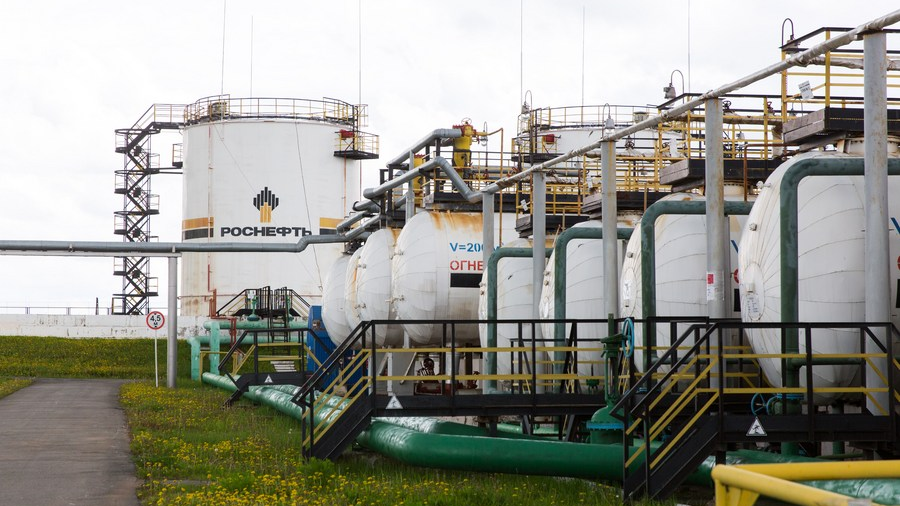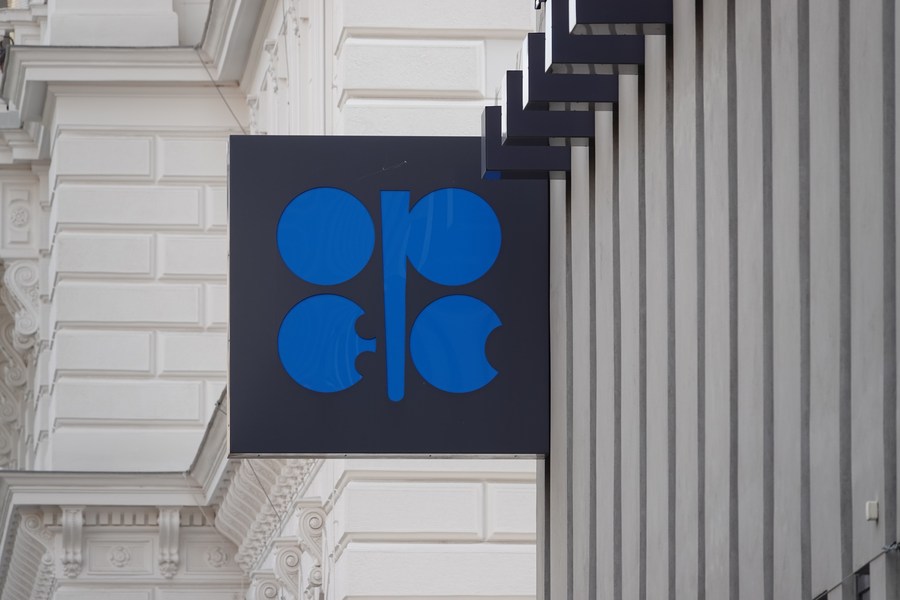
A plant of the Udmurtia Petroleum Corp project in Udmurtia, a republic in western Russia, June 2, 2017. /Xinhua
A plant of the Udmurtia Petroleum Corp project in Udmurtia, a republic in western Russia, June 2, 2017. /Xinhua
Editor's note: Freddie Reidy is a freelance writer based in London. He studied history and history of art at the University of Kent, Canterbury, specializing in Russian history and international politics. The article reflects the author's opinions, and not necessarily the views of CGTN.
On December 5, two fresh Western initiatives targeted at curbing Russian oil revenue come into effect. First, a European Union (EU) embargo on the maritime import of crude oil, and second a G7 program capping the price of Russian crude oil at $60 a barrel. Such mechanisms represent a radical intervention but what impact will this have on the global price of crude or the global economy as a whole?
The economic legacy of COVID-19 and the Ukraine conflict has deeply hampered a global economic recovery. Long-dormant inflation has surged due to commodity and labor shortages as a result of the pandemic in addition to food and energy supply challenges presented by the conflict in Ukraine.
There is a real risk, therefore, that the twin initiatives beginning today will lead to a rise in the price of Brent crude, driving up inflation. However, the G7 and EU would argue that the two initiatives are aimed at allowing Russia to capitalize on inflated oil prices while not actively prohibiting the sale of Russian oil if it is sold below the $60 a barrel threshold to non-member states. At the time of writing, the price per barrel stands at $85.57.
The EU believes that the price cap will help to stabilize prices but the prospect of realizing this ambition is a political consideration which needs to be made in Moscow. The Kremlin has given every indication that it will refuse to adhere to new legislation. Deputy Prime Minister Alexander Novak warned on state broadcaster Rossiya 24 that "We will sell crude and products to the countries that will work with us on market conditions, even if that means we'll need to cut production."
The decision is then whether to rely on countries willing to defy the G7 price cap and pay a higher price per barrel or whether to ship to countries adhering to the $60 cap and rely on volume to drive revenue.
While this judgment is being made, the Organization of the Petroleum Exporting Countries and partners (OPEC+) agreed to maintain oil production while it assesses the wider impact of new sanctions. In October, OPEC+ agreed to cut oil production by two million barrels a day, equivalent to two percent of global demand, sending prices soaring to $97.50 before falling back to $85.57 and there is every chance similar moves could be made in coming weeks.

The headquarters of the Organization of the Petroleum Exporting Countries (OPEC) in Vienna, Austria, September 5, 2022. /Xinhua
The headquarters of the Organization of the Petroleum Exporting Countries (OPEC) in Vienna, Austria, September 5, 2022. /Xinhua
The EU is adamant that the exemptions permitting the import of Russian oil to member states with extenuating circumstances, in addition to the continuation of the flow of oil under the terms of the $60 price cap, will "keep energy costs stable at a time when high costs – particularly elevated fuel prices – are a great concern to all Europeans."
Furthermore, it is argued that the "main beneficiaries of this lower-priced oil will be third countries, including developing countries in Africa, Asia, and Latin America, which in turn serves global market stability."
Reuters reports on Russia's response via a statement through its embassy in Washington cautioning that "regardless of the current flirtations with the dangerous and illegitimate instrument (the price cap), we are confident that Russian oil will continue to be in demand."
Should demand drop, we could see OPEC+ announce an additional fall in output. The Head of EMEA oil and gas research at J.P. Morgan Christyan Malek indicated that a swift response would be likely, telling the Financial Times "If markets move adversely, OPEC+ will intervene as it has made clear it wants to balance the market proactively and pre-emptively."
If output were to dip again as a consequence of a reduced Asian economic productivity or in line with a wider global recession, oil prices could once again be on the rise, exacerbating inflationary fears in a "doom loop" scenario.
Despite the measured nature of the price cap stops well short of an outright embargo to third party nations, the scale and economic significance of the intervention cannot be underestimated.
While OPEC remains the arbiter of oil output, it is the EU and G7's response to the political environment which is most significantly impacting the market price and ultimately, inflation. The merit of such an intervention will soon be analyzed but the prize of long-term price stability is likely to remain elusive until the cessation of hostilities in Europe.
(If you want to contribute and have specific expertise, please contact us at opinions@cgtn.com. Follow @thouse_opinionson Twitter to discover the latest commentaries on CGTN Opinion Section.)